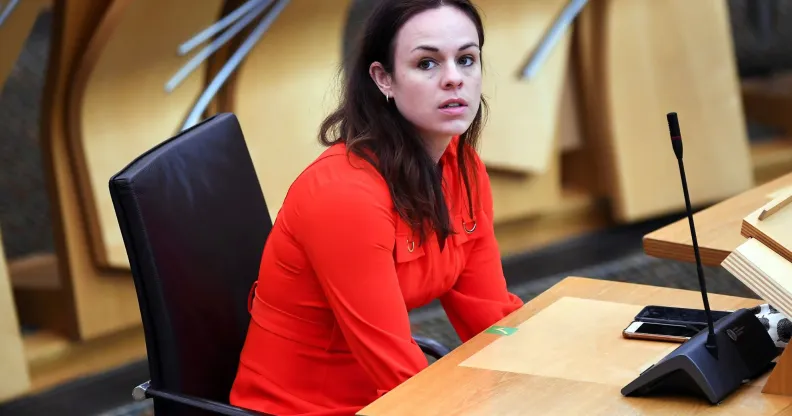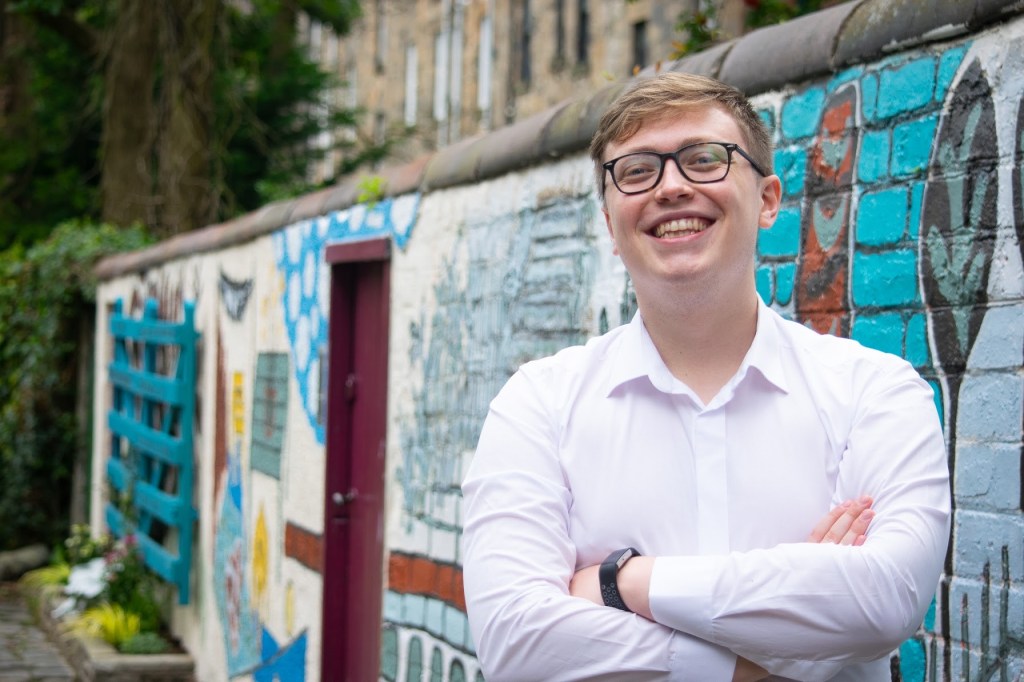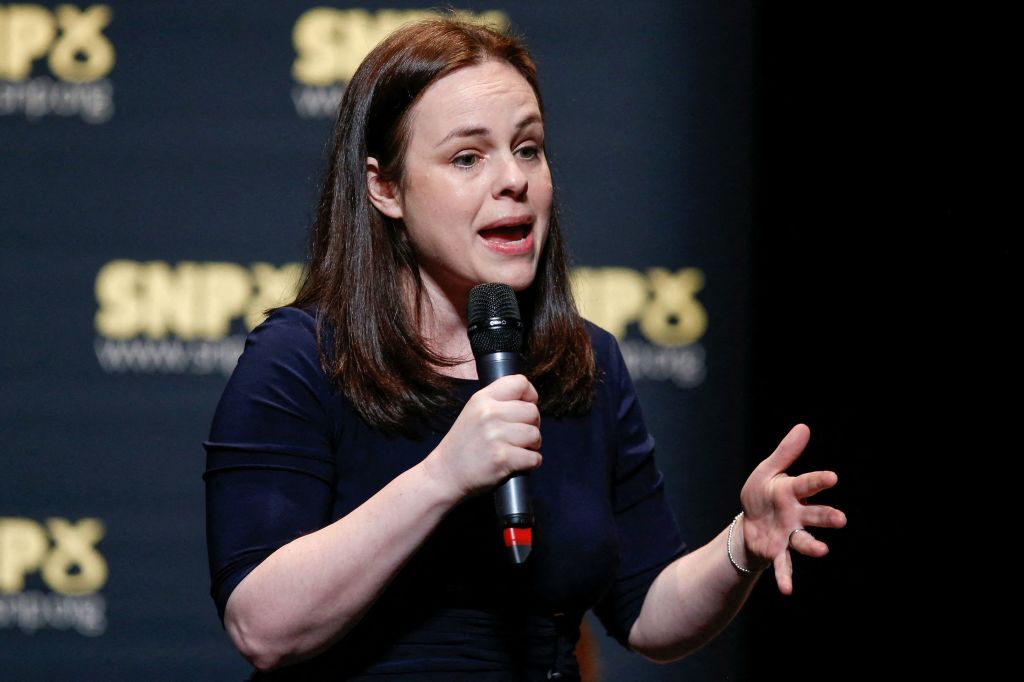Conversion therapy can never be a ‘choice’, survivor tells SNP’s Kate Forbes

Kate Forbes has been vehemently criticised for her views on LGBTQ+ rights. (Getty)
A gay man who was subjected to conversion therapy has told MSP Kate Forbes that it’s impossible to consent to the traumatising practice.
Kate Forbes could become the new leader of the SNP, and Scotland’s next first minister, on Monday (23 March). Polls have her neck-and-neck with her more socially liberal rival, Humza Yousaf.
The prospect of Forbes as first minister is a troubling one for many LGBTQ+ people – throughout her leadership bid, Forbes has said she doesn’t personally believe in same-sex marriage or gender recognition reform, and has made controversial comments on conversion therapy.
While she supports a legislative ban, Forbes suggested it’s possible for conversion therapy to be a “choice”.
Many experts agree it isn’t possible to consent to such a traumatic practice.
Blair Anderson, a Scottish Green Party councillor for Glasgow who was subjected to conversion practices after he came out as gay aged 14, says that although he “consented”, he never really had a choice.
“I come from quite a fundamentalist religious family in the Church of Scotland. When I came out as gay in my early teens, I was told that being gay wasn’t an option,” he tells PinkNews. “So, I had a choice: I could stay in the family and deny my sexuality, or I could accept my sexuality and lose my family.
“Being quite young, I had some uncertainty about how the world works, how I’d get to school the next day. That’s why I ended up almost, if you like, ‘consenting’ to what became conversion therapy.”

Throughout his teenage years, Blair was subjected to Bible teachings and prayer in an effort to stifle his sexuality.
“It was never the more extreme versions you hear about, it was more about being controlled – the family member making sure I was complying, that I wasn’t acting out my sexuality, that I wasn’t talking about my sexuality, that I was living the fake life that they wanted me to be living,” he says.
“In exchange, they continued to let me be a part of the family. After six, seven, eight years it became too much for my mental health.”
At the age of 20, Blair cut ties with his family and decided to live his life on his own terms.
“That led to the permanent breakdown of all relationships I had with my old life before I moved away for university, but ultimately it was worth it for being able to live my own life properly and to get away from some really mentally harmful environments that I was in.”
While Blair escaped the controlling situation, he’s still living with the after-effects. He expects to be dealing with the mental health consequences for the rest of his life.

“It’s not like once you stop conversion therapy that’s it, you can move on. It’s a very traumatising experience and most people who come out of it have life-long mental health impacts.
“I have post-traumatic stress disorder. I imagine I will have PTSD for the rest of my life. I have to take medication every day. I’m very fortunate I can afford therapy.”
‘Not possible’ to consent to conversion therapy, gay survivor says
While he’s still dealing with the fallout of conversion therapy, Blair is in a much better place today, but he’s been frustrated by the way the SNP leadership race has descended into regressive discussions about whether it’s possible to consent to conversion therapy.
“It’s just not possible to properly consent to conversion therapy because you can’t freely and completely give your consent to that process,” he says.
“If a dominant group is trying to get you to change something fundamental – and fundamentally unchangeable – about yourself because you don’t fit in, that is inherently coercive.

“Every time it takes place, it’s a form of coercion because you’re being pressured. Even if you think you’re agreeing to it, you’re agreeing to it because you’re being pressured to go through with it.”
Blair also has little time for Forbes’ suggestion that she’s faced “scrutiny” over her religious views. The criticism she’s facing has nothing to do with her faith, he says.
“The most pro-faith stance you can take in this argument is to properly ban conversion therapy,” he says.
“Many survivors, including [me], used to have a very strong faith and we have been robbed of the ability to practice our faith safely and well because of conversion therapy.
“I used to be a believer in God, I used to be a practising Christian. It’s because of the trauma that was inflicted on me in religious environments that I’ve been stopped from being able to do that.”
Blair – an activist with End Conversion Therapy Scotland – now wants to meet Forbes to discuss the issue.
“We’re very keen to make sure that whoever the next leader of the Scottish government is, they do what most members of the public want, that they respect the majority of the current Scottish government which is based on progressive policies, including a comprehensive ban on conversion therapy.”
Readers affected by the issues raised in this story are encouraged to contact Samaritans free on 116 123 (www.samaritans.org) or Mind on 0300 123 3393 (www.mind.org.uk). Readers in the US are encouraged to contact the National Suicide Prevention Line on 1-800-273-8255.
How did this story make you feel?

